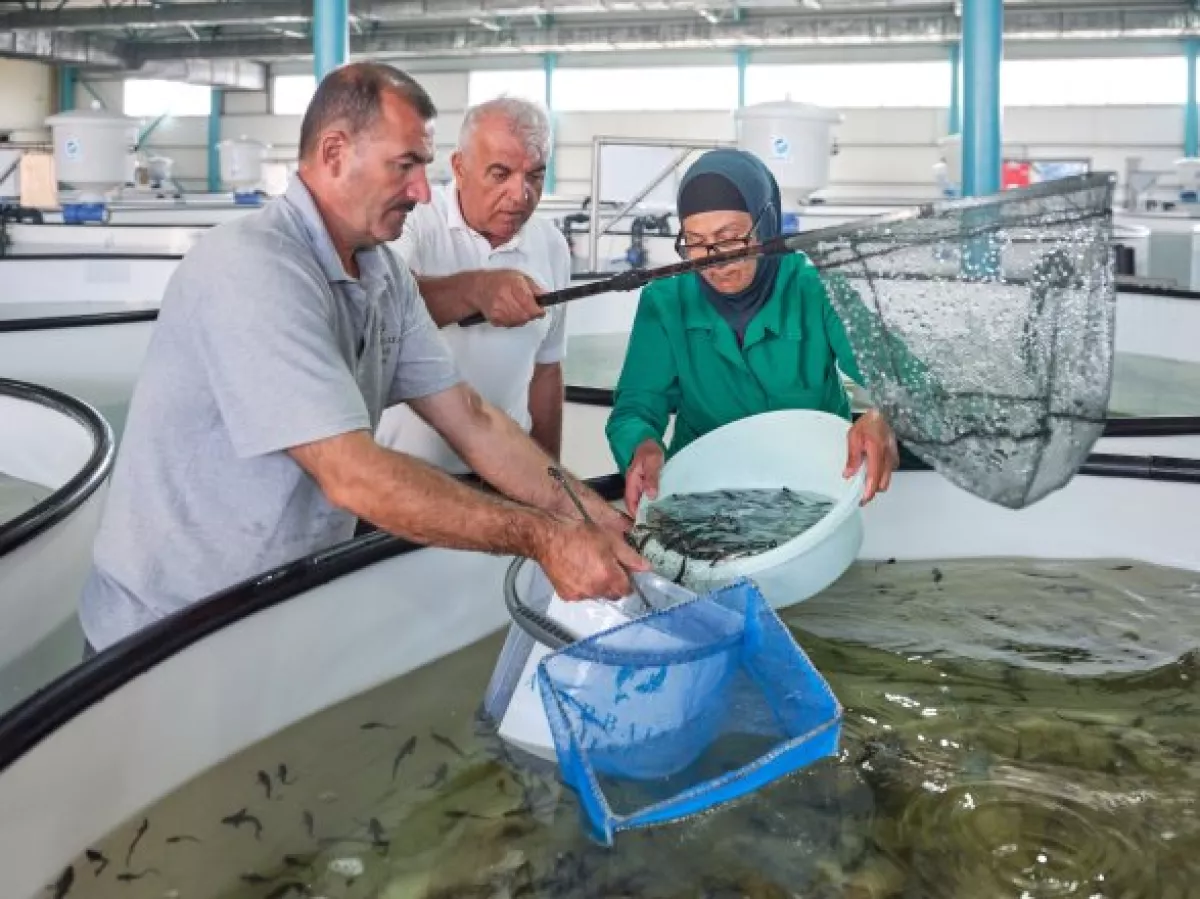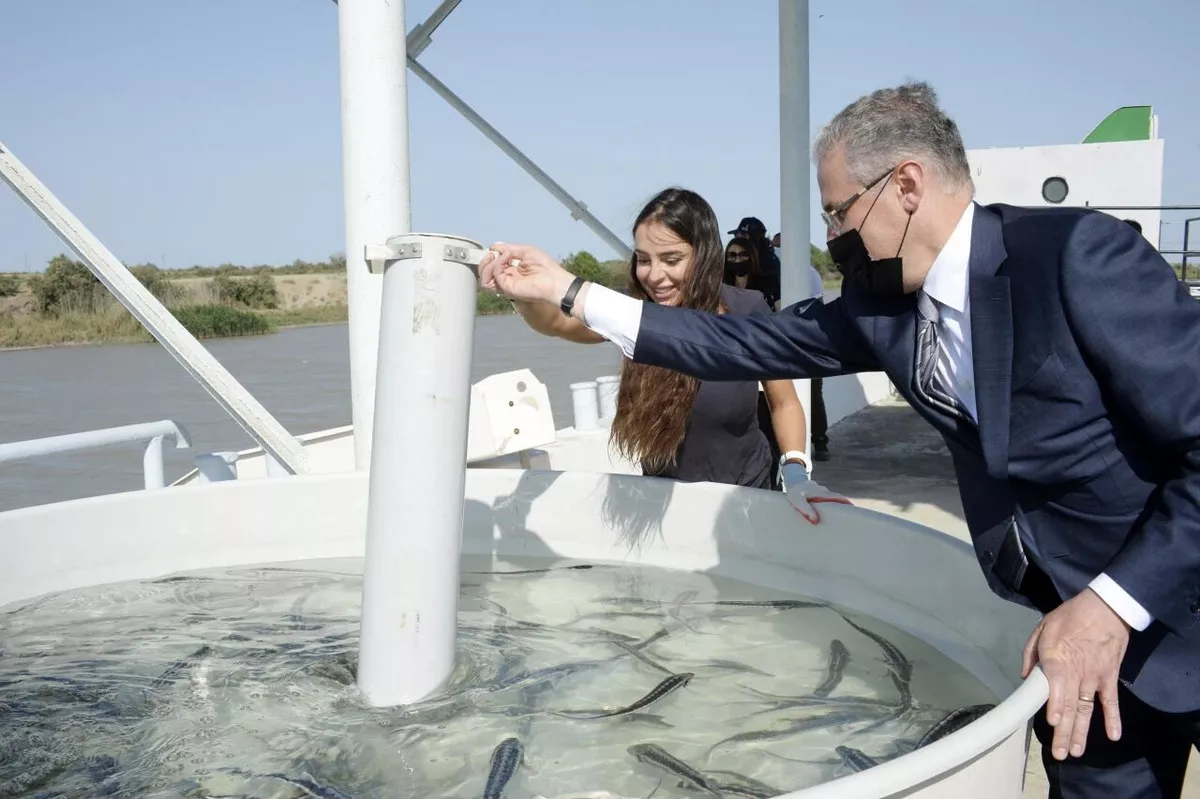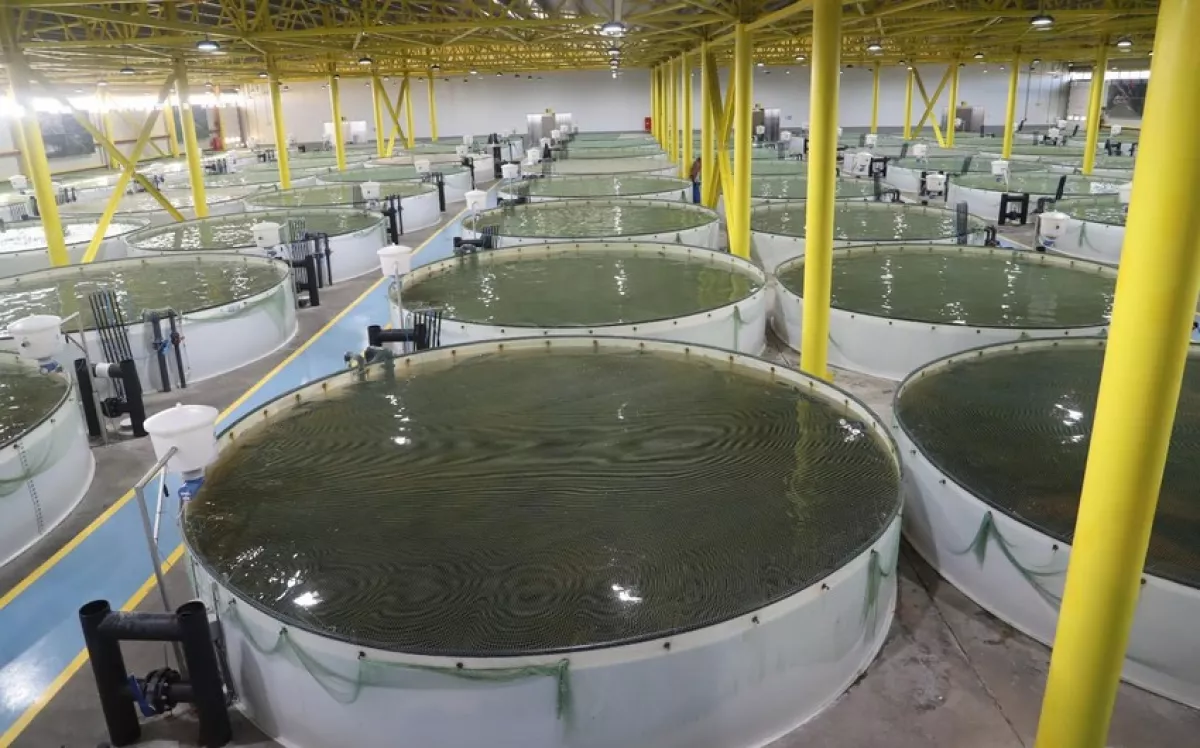Azerbaijan's strategic push for aquaculture development Export, ecology, and economy
As global fish populations continue to deplete, fishing fleets around the world are rapidly shrinking. In response, many leading nations are shifting from wild fish harvesting to commercial breeding in artificial water bodies and industrial-scale fish farming. This trend, known as aquaculture (from the Latin aqua — water and cultura — cultivation), has been steadily growing in Azerbaijan, particularly in the face of the rapid shallowing and severe depletion of fish stocks in the Caspian Sea. A major boost to the country’s commercial seafood production is expected from the recent decree signed by President Ilham Aliyev on December 19, titled "Additional Measures for the Development of Fisheries and Aquaculture in Azerbaijan."
According to research by Azerbaijani ecologists and experts from relevant international organizations, the trend of depleting fish stocks in the rapidly shallowing Caspian Sea basin has significantly accelerated over the past decade. This is not only due to global warming and other objective climate issues, but also due to human activities.
One of the major contributing factors is the regulation of the riverbeds of all rivers flowing into the Caspian, which has greatly reduced the available spawning grounds for fish. The depletion of the sea’s biodiversity is also impacted by the long-term extraction and transportation of hydrocarbons in the enclosed body of water, the discharge of untreated wastewater, and the introduction of invasive species such as the predatory comb jelly (Mnemiopsis leidyi), which destroys the larvae of commercially important fish and their food source—plankton. At the same time, the sharp decline in the crucial element of the food chain—the sprat—has led to a more than tenfold reduction in the number of sturgeon and other valuable fish species. Poaching has had a particularly detrimental effect on the restoration of the marine fish population.
Undoubtedly, Russia, Azerbaijan, Kazakhstan, Turkmenistan, and Iran are working to protect the severely depleted fish resources of the Caspian Sea. The countries are jointly combating poaching and regulating national fishing quotas. Since the establishment of the Joint Commission for the Conservation and Rational Use of Aquatic Biological Resources and the Management of Caspian Sea Stocks in September 2014, a moratorium on the industrial fishing of sturgeon has been introduced, with this ban being extended annually.
Azerbaijan actively participates in the Commission’s activities, including efforts to increase fish stocks in the Caspian. Over the past five years, more than 30 million fish fry, including sturgeon and salmon species, have been released into Azerbaijani waters. It is clear that the ecological and conservation measures aimed at protecting the biodiversity of the Caspian will be long-term. However, despite these efforts, experts estimate that traditional marine fishing in the Caspian region has very limited long-term prospects.

Marine fishing is becoming an increasingly complex and unprofitable sector of the economy for Azerbaijan, making the gradual shift from marine fishing to aquaculture inevitable. Global experience shows that aquaculture currently accounts for more than half of the world's total seafood production. Commercial fish farming in artificial water bodies, fish pens, and industrial fish breeding facilities is also developing in Azerbaijan, where around 500 private pond farms operate. However, some of these farms operate without proper registration and fiscal oversight.
Additionally, the country has established nearly a dozen large fish farms in Shaki, Zagatala, Gabala, Gusar, Mingachevir, Neftchala, Salyan, Shamkir, Lankaran, Masalli, and the Nakhchivan Autonomous Republic. These farms produce the majority of affordable commercial fish—such as silver carp, grass carp, common carp, bream, and kutum—as well as more expensive species like trout and other salmonids.
However, Azerbaijan has made its most significant progress in aquaculture development over the past six years, thanks to the establishment of several large industrial-scale facilities built in the Neftchala, Pirallahi, and Ismayilli regions, as well as at the Mingachevir Reservoir. These facilities focus on farming sturgeon, ship sturgeon, beluga, salmon, and have also established valuable caviar production. Another major aquaculture enterprise is set to launch soon in the Karabakh region: in Lachin, at the Hakari fish farm, the production of rainbow trout and chicken sturgeon will be established.

To support these promising trends, Azerbaijan has developed the "State Programme for the Development of Aquaculture in Azerbaijan for 2023-2027." The most significant step in this direction was the recent decree signed by President Ilham Aliyev, titled "On Additional Measures for the Development of Fisheries and Aquaculture in Azerbaijan." The document aims to advance fisheries and aquaculture in the country, including enhancing productivity, improving the management and control systems in this sector, developing fish resources with consideration for their environmental impact, and organizing and regulating fisheries and aquaculture operations in line with modern requirements.
To implement these tasks, the decree establishes a public legal entity, the Fishing and Aquaculture Center, under the Ministry of Agriculture. The new body will be responsible for activities related to the organization and management of fisheries, including aquaculture, the enhancement, use, conservation, and control of fish and other aquatic biological resources. The statutory capital of the Center will be 1 million manat ($588,000) and will be formed from state budget funds. The Cabinet of Ministers, along with the Ministries of Agriculture, Ecology and Natural Resources, and Finance, has been tasked with addressing issues arising from this decree. The document also outlines changes to be made to several presidential decrees and orders.
As outlined in the decree, the Ministry of Ecology and the Ministry of Agriculture will be tasked with organizing activities to monitor and assess the environmental impact of existing aquaculture operations that are not registered with the state, in order to ensure transparency and establish a proper registry of fish farming facilities in the country. Additionally, the Cabinet of Ministers, with the support of the relevant ministries, is required to develop and submit proposals to the president regarding the mechanism for state support of the fisheries sector.

Finally, under the decree, the Ministry of Agriculture will be granted the authority to issue permits for the allocation of land for the establishment of specialized fish product markets in cities and along the Caspian Sea coast (excluding land in the 20-50-metre coastal strip). Among other tasks, the ministry will provide assessments on land classification and its conversion from one category to another, as well as coordinate with relevant state bodies to determine the placement of specialized fish markets.
The legal regulation of aquaculture, the implementation of state support measures for fish farming and fisheries operations, and the organization of the retail sector for seafood sales are all long-overdue decisions. The new presidential decree contributes to the development of this sector in a sustainable and controlled manner, ensuring the production of high-quality seafood, thereby enhancing its competitiveness in international markets. This is a crucial point, as in the long term, the growth of aquaculture in Azerbaijan could become a significant component of non-oil exports and a source of foreign currency inflows.
Over the past couple of years, Azerbaijani producers in the aquaculture sector have made significant breakthroughs in the export market. For instance, last year, nearly 600 kg of sturgeon caviar were exported to foreign countries, primarily Singapore, the UAE, the US, and Russia—more than twice the volume of the previous year. Additionally, thanks to the efforts of the Azerbaijan Food Safety Agency (AFSA), which developed and presented the National Monitoring Plan to the relevant EU structures, Azerbaijan has, for the first time, received approval for the export of sturgeon and salmon caviar, produced in the country through aquaculture, to the EU member states.








